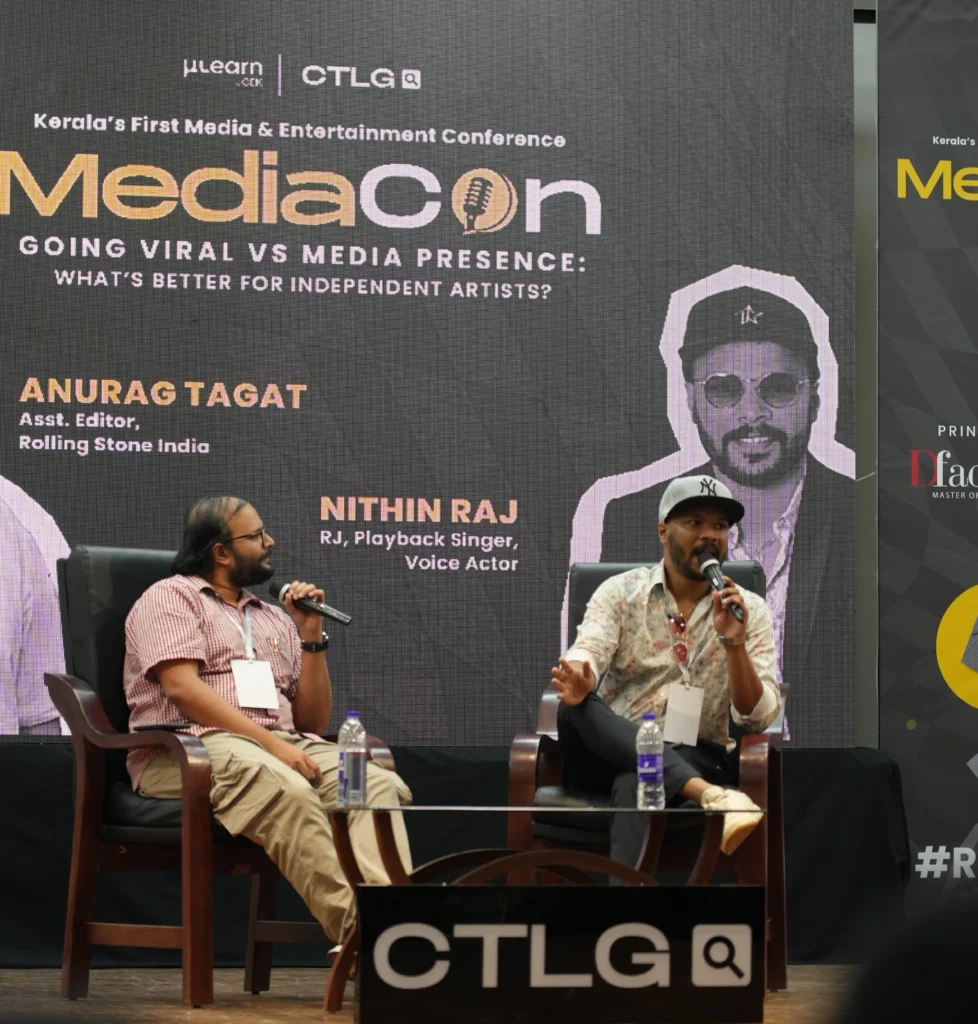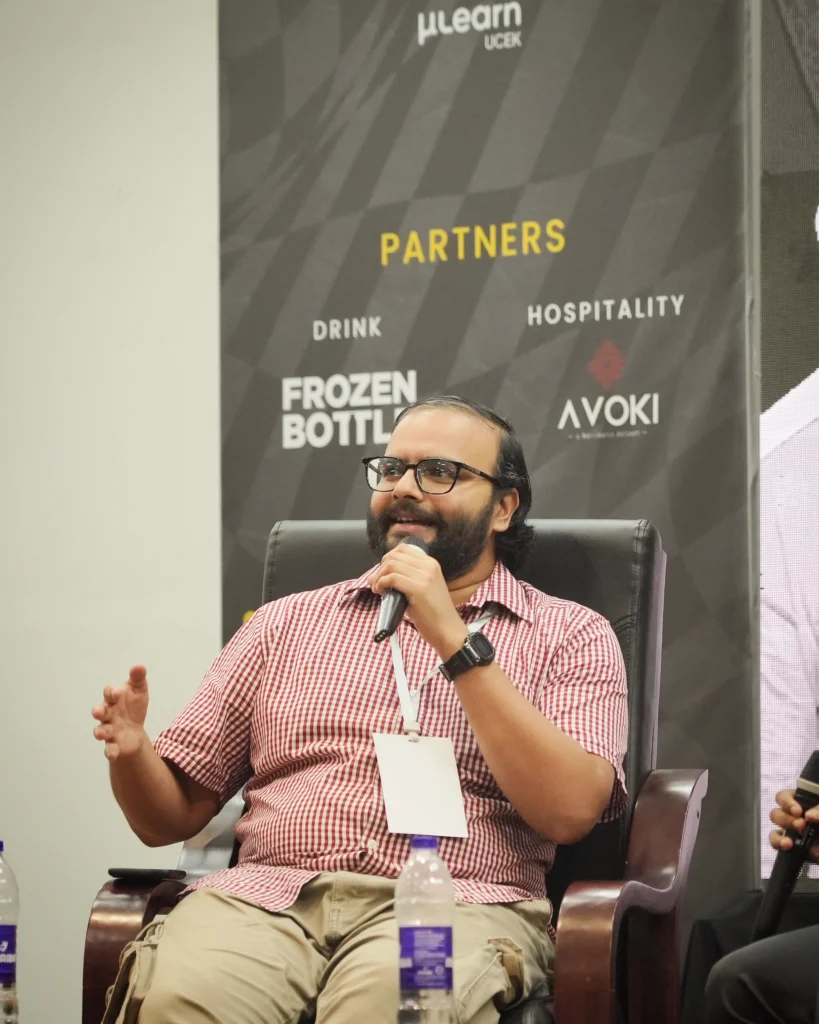The spotlight at MediaCon—a one-day conference held on April 22 at the University of Kerala, Kariavattom—was a raw, unfiltered conversation between playback singer and RJ Nithin Raj and music journalist Anurag Tagat. Organized by CTLG in collaboration with the student-led initiative µLearn UCEK, the event brought together artists, journalists, and students to understand how digital platforms are reshaping careers in music and media.
Nithin and Anurag, speaking from personal experience and industry observation, unpacked how genuine talent is often eclipsed by algorithm-driven visibility, short-lived virality, and the constant demand to stay “relevant.”
“At one point, all you had to do was make the music. Now the artist has to do everything,” Nithin said. “You have to do marketing, you have to take it to the people — otherwise it just doesn’t move.”

The Digital Shift
Nithin opened up about his early days, recording his debut album Hello under the late violinist Balabhaskar.“Back then it was Satya Music— they were one of the few production houses doing original music, giving platforms to original composers,” he recalled. “There were channels to put music out — it was CDs, cassettes, sometimes All India Radio. And that felt enough.”
But today’s platforms, he said, come with their own burden. “It’s not enough to be an artist anymore. You have to be a creator. You have to know the algorithm. You have to know editing, thumbnails, reels… And it’s not what all artists are good at.”
Anurag Tagat on the “illusion” of virality
At that moment, Anurag Tagat, music journalist and Rolling Stone India editor, stepped in with a sobering take on what digital virality really looks like behind the scenes.
“It feels like things are going viral all the time. But it’s not always organic,” Anurag said. “There are so many backend things — you’re boosting it, you’re marketing it, sometimes there are label pushes. So it’s not just someone uploading a thing and waking up with a million views.”
He added that today’s artists are often misled into thinking that virality equals success — when, in reality, it’s often just a spike with no long-term ecosystem behind it.

“You see someone go viral with a reel, and you assume they’ve made it. But unless there’s a system around them — a team, a strategy — that moment just fizzles out.”
Talent Shows and Temporary Fame
Nithin also touched on reality music shows, which he acknowledged have given many artists a platform, but not always a pathway.
“You go on TV, you get votes, you win maybe — and then what? After that, there’s silence. There’s no continuity. The artist just disappears,” he said. “You feel like you’re doing so much, but the actual journey starts after the show. And that part, nobody prepares you for.”
Anurag agreed: “It’s the difference between being seen and being remembered. And today, it’s hard to be remembered unless you’re constantly in front of people.”
The Mental Load of the Modern Artist
Nithin articulated a sentiment shared by many, observing the increasing pressure for artists to engage in constant self-promotion to gain visibility, a performance that extends far beyond their creative work. As he put it, “There are people who are amazing composers, but they don’t know how to promote. And then someone who’s just OK at music but great at Instagram — they take off,” highlighting a perceived imbalance where the ability to sell oneself can sometimes outweigh artistic merit. “It’s not even about talent anymore, sometimes. It’s about who can sell it better,” he stated. This constant need for visibility, Nithin noted, can be exhausting, adding, “It’s tiring. I see young artists just trying to stay visible — not even trying to make great music. Just trying to stay relevant.“
Anurag offered a contrasting perspective, suggesting a potential shift towards prioritizing deeper connections with smaller, more engaged audiences rather than solely pursuing large-scale reach. “Maybe it’s about smaller audiences that really care,” he proposed. “We keep chasing scale — but maybe what matters more is depth.“
Nithin concluded by acknowledging the necessity of online content creation in the current landscape but cautioned against allowing the demands of visibility to eclipse the fundamental artistic drive. “I’m not saying don’t do content,” he clarified. “Do it. But don’t forget why you started. Don’t let the noise take away the music.“
Read more similar posts here: Southloom: Kerala’s 1st Amazing Handloom






